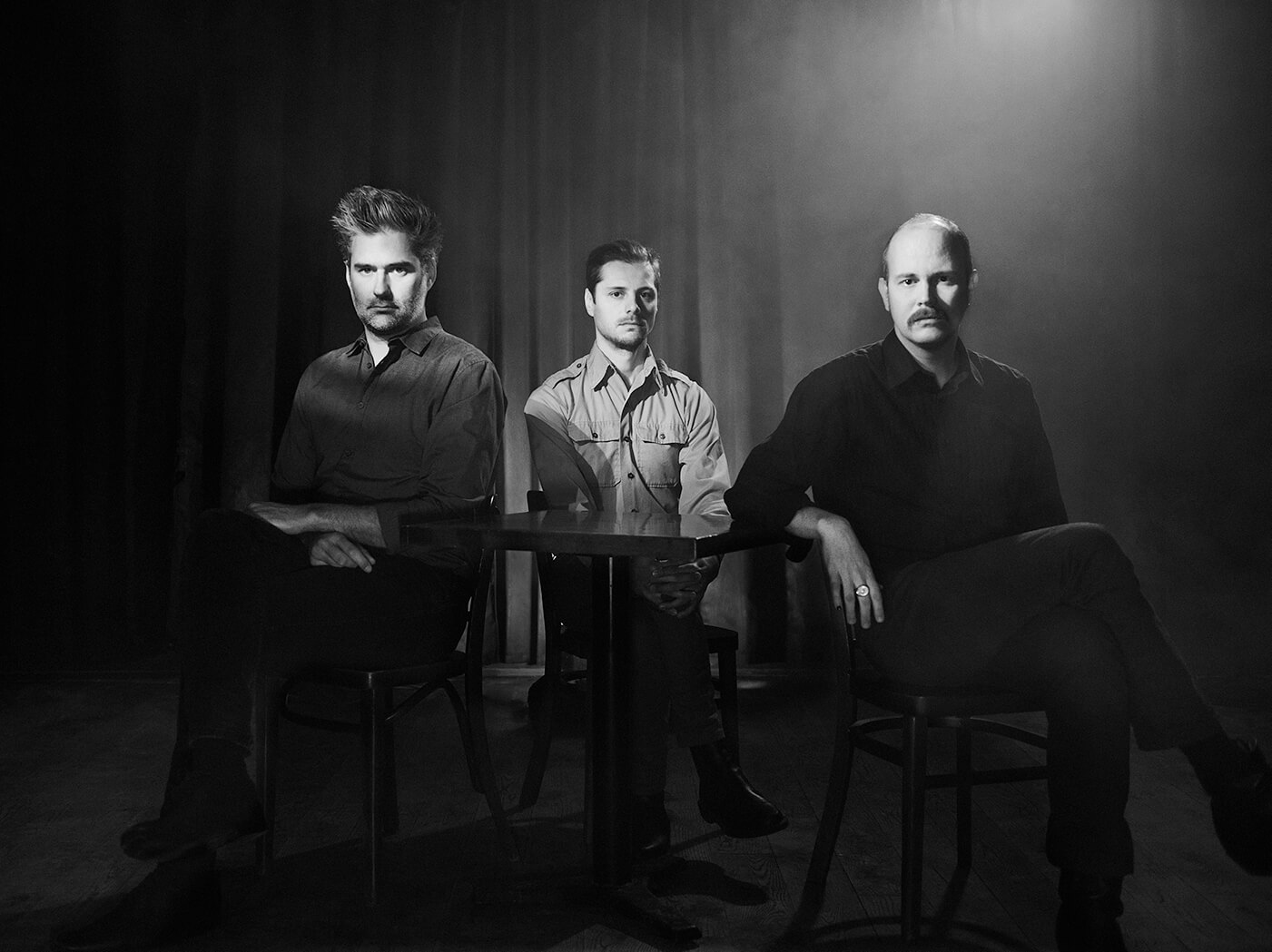Meet Timber Timbre, the rootsy rockers with a taste for the macabre
Lead singer and founder Taylor Kirk talks complex narratives, thematic influences and tips to rid the tour bug.

Image: Caroline Desilets
About a year before Bon Iver took his self-imposed exile in a Wisconsin cabin, Taylor Kirk sequestered himself in the forested fringes of a small Canadian town to write his debut album as Timber Timbre. But Cedar Shakes is no For Emma, Forever Ago. Where Bon Iver’s record is hushed and wintry, Kirk’s 2005 effort is a sun-drenched romp through bluegrass, indie folk and country. More than a decade later, though, it looks as though summer has come to an end.
Now a quartet, Timber Timbre have swapped their rustic sound for a city-slick gloss. The band’s sixth and latest album, Sincerely, Future Pollution, is their most conceptual and cinematic work to date. Through voluptuous synths, noisy guitars and Kirk’s gravelly baritone, the LP paints a picture of modern societal ills, where decadence and decline go hand-in-hand.
We recently caught up with the Timber Timbre frontman and founder to chat about Sincerely, Future Pollution, crafting song narratives and, of course, gear.
Let’s start off with Sincerely, Future Pollution. Was there a particular theme that you guys aimed to flesh out with this record?
We aimed for this album to be a narrative of a hodgepodge of things that don’t necessarily go together. To challenge modern perception of mainstream ideals, especially in our generation where everything is prepared in pristine packaging. Sincerely, Future Pollution followed the theme of humourless news, coming-of-age romantic comedies, dystopias, tunnel dwellers and mole people. Even science fiction and waste management.
What was different about making this record as compared to previous ones?
There were lots of different ideas on this record. We composed and arranged more as a group this time. It was much more collaborative. We travelled to France and recorded outside of Paris. We made it over a longer period and shared it with friends for input. It received more consideration overall despite starting with a far less focused vision from the outset.
Songs such as Obelisk and Beat The Drum Slowly have a cinematic quality to them. Where does this come from?
Movies, mostly. We are fans of all sorts of cinematic genres and it tends to place a significant role with our sound.
How do you guys channel these inspirations into your music?
Feelers. I see the process as simply being able to use words and music to convey a particular mood or a certain inspirational jolt. I’ve never thought of myself as much of a songwriter. Perhaps it’s always been due to the lack of ‘song’ at play.
What methods would you guys use to recreate these tracks for live performances?
Meditation, medication, repetition and dedication.
There’s also a poetic and riddle-like quality to songs like Velvet Gloves and Spit, Grifting, and Black Water. What is the process like to create a complex musical narrative?
Lazily embracing confusion. Assembling a massive puzzle over a couple years with tiny pieces, so small they’re abstract in the beginning. Sometimes forcing pieces together that don’t belong. For example, Velvet Gloves and Grifting might’ve been one song at some point, or shared pieces for a while, until realising where everything fit. It’s an organic and ever-evolving process.
Let’s talk about your rig for a bit. What gear are you guys finding favour with at the moment?
Historically, I’ve always been most excited by old compressors, tube guitar amplifiers, and organs. I’m drawn to studios where these kinds of things have been collected. I’m not much of a gear person really, though – Mathieu [Charbonneau, keyboardist] and Simon [Trottier, guitarist] are far more curious about exploring things technically.
We find it quite interesting that albums like Timber Timbre and Hot Dreams were shaped by the locations they were conceived in. How important is the recording environment to your creative process?
It’s pertinent. Equipment and personnel are far more critical to the environment than the actual location for making a recording, I’ve found.
Are there plans for another record in the future?
There’s always another record to come but I’ve been recording songs, a few at a time lately. Kind of orphaned songs that aren’t part of a larger album vision. A less formal approach.
Since you guys are on tour at the moment, could you share with us some tips on how to keep the intensity consistent from night to night?
Chin-ups. Push-ups. Sit-ups. Monster Energy beverage. Eye contact. Suggestive body language. And lately, Bucky [Wheaton, drummer] has been making inspirational team-building short films for, by, and about Timber Timbre, which has really helped boost morale.
Sincerely, Future Pollution is out now on City Slang Records.
